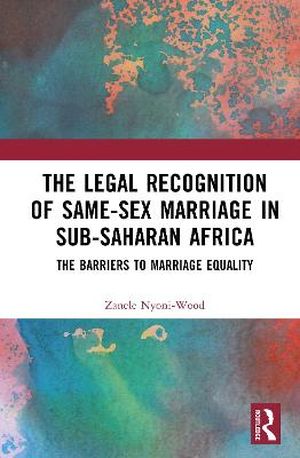
This book considers the prospects for the legal recognition of same-sex marriage in Sub-Saharan Africa.
Legal recognition of same-sex relationships continues to spread across the globe, with several countries extending the definition of marriage to include same-sex couples. Meanwhile, in sub-Saharan Africa, most countries criminalise consensual same-sex acts. Despite a rapidly changing landscape with respect to LGBT rights, South Africa is the first and only African country to have legalised same-sex marriage, while a few others have decriminalised consensual same-sex acts. Deeply embedded religious, societal, and cultural norms, along with political controversies, impact the recognition of same-sex relationships; such that one of the recurring arguments against increasing legal protections for LGBT people is that this represents Western liberal values, and is a radical departure from African culture and African norms. In this context, this book provides a comparative analysis of the legal position of same-sex relationships in South Africa as well as in Botswana, Kenya, and Nigeria. Thematically, it explores the role of colonialism and how the introduction of Christianity and sodomy laws has shaped African sexuality and marriage, as well as the role played by religious and political leaders in shaping both the law and public opinion of same-sex relationships.
Based on this analysis and drawing on Kees Waaldijk’s three-stage theory of the road to marriage equality, the book then offers an alternative framework for achieving wider recognition of same-sex marriage in Sub-Saharan Africa. This book will be of interest to scholars with relevant interests in socio-legal and gender studies, as well as individuals or organisations engaged in LGBT rights advocacy in Africa.